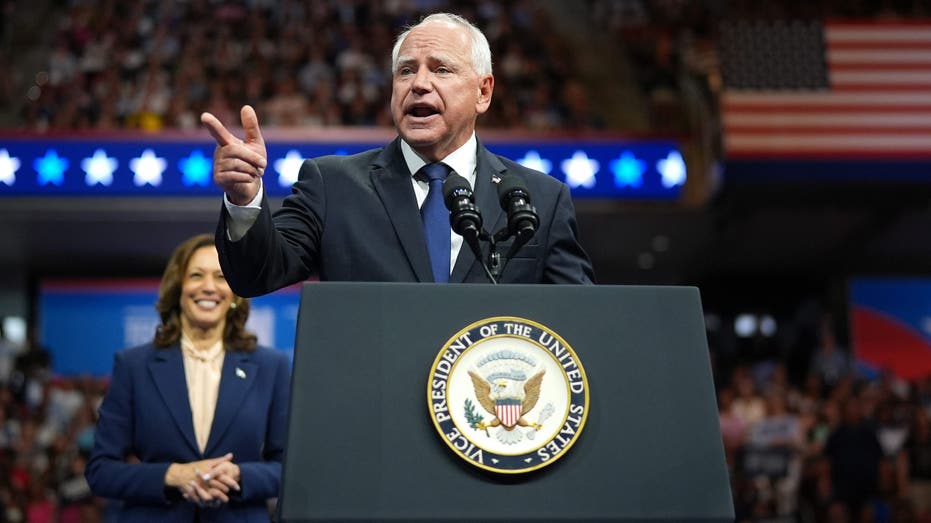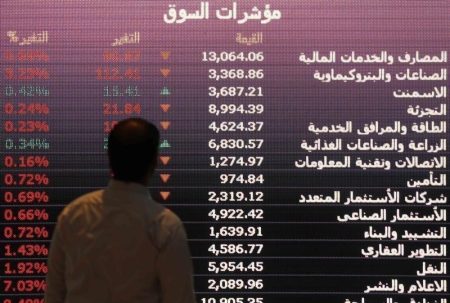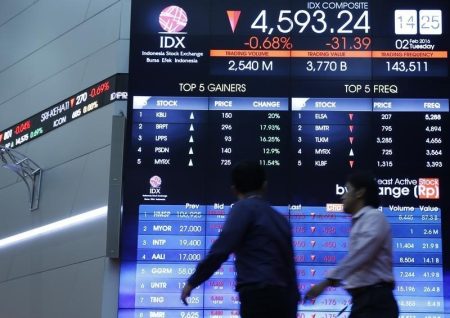Vice President Kamala Harris’ presidential campaign has not yet released her economic agenda for the country, but a look at the track record of her running mate, Minnesota Gov. Tim Walz, might provide insights into how a Harris-Walz administration might govern.
Over the course of Walz’s governorship, Minnesota has lagged behind the national average in some areas, and performed better in others.
Walz became governor in January 2019, just before the coronavirus pandemic began, and imposed stringent lockdowns during the pandemic that have been criticized by some small business owners in the state.
He was re-elected in 2022, and during his second term, he signed sweeping tax reforms in Minnesota, which has the highest corporate tax rate of any state in the U.S. at 9.8%, according to the Tax Foundation.
THERE ARE A LOT OF CONTROVERSIES SURROUNDING TIM WALZ: REP. GREG STEUBE
Jared Walczak, vice president of state projects at the Tax Foundation, told FOX Business that under Walz, Minnesota has been an outlier in consistently raising taxes, noting that most states have cut taxes in recent years.
“Tim Walz inherited the nation’s highest corporate income tax rate and sixth-highest individual income tax rate, and then drove tax burdens higher,” Walczak said.
He explained, “As governor, Walz signed legislation expanding taxation of businesses’ international income, curtailed standard and itemized deductions for many taxpayers, added a surtax on the investment income of high earners, created a new payroll tax that will go into effect in 2026, and imposed a new tax on retail deliveries. “
TIM WALZ SHUT MINNESOTA DOWN FOR TWO YEARS: GREG URBAN
The state’s 2023 tax reforms also included Child Tax Credits of up to $1,750 per child for families making less than $96,000, and expanded tax exemptions for Social Security income and income from student loan forgiveness.
The left-leaning Institute on Taxation and Economic Policy (ITEP) praised Minnesota’s tax reforms under Walz in a blog post last week, referring to the new code as “moderately progressive.”

Since Walz has been at the helm, the North Star State has significantly under-performed the greater U.S. in both economic growth and employment growth rates.
Data from the U.S. Bureau of Economic Analysis shows Minnesota’s economy has grown 6.2% under Walz’s leadership, while the U.S. economy has grown 11.5% over the same time frame, according to an analysis by Reuters.
STUART VARNEY: KAMALA HARRIS WANTS TO QUIETLY ADD TO OUR NATION’S ‘TSUNAMI’ OF DEBT
The outlet noted that prior to COVID-19 hitting, Minnesota’s growth rate was in-line with the greater U.S., but the state has struggled to recover compared to the national growth rate since the second quarter of 2020.
Minnesota has also lagged behind the U.S. in recovering jobs lost during the pandemic. The same Reuters report showed that, according to U.S. Bureau of Labor Statistics data, the nation as a whole has seen 5.8% employment growth since January of 2019, but Minnesota’s employment growth has only risen 0.5% with Walz at the helm.
However, Minnesota has outperformed the U.S. in unemployment, both before the pandemic and after. Currently, the state’s unemployment rate is at 2.9%, compared to the U.S. rate of 4.1%.
Minnesota also has a lower inflation rate than the U.S. As of May, the state’s annual inflation rate was at 2.6%, while the national rate was at 3.3%, according to Bureau of Labor Statistics data.
When it comes to personal income growth, Minnesota is on par with the national rate, with the state seeing a 30% rise under Walz’s leadership, just a tad below the U.S.’s 30.3%.
Reuters contributed to this report.
Read the full article here











